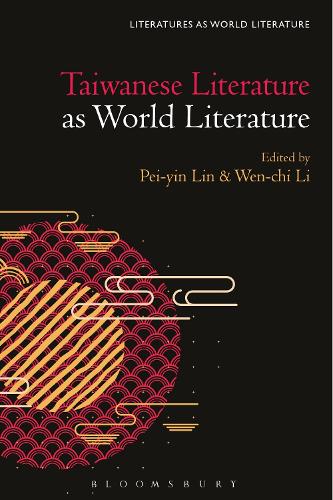
Taiwanese Literature as World Literature
(Paperback)
Available Formats
Publishing Details
Taiwanese Literature as World Literature
By (Author) Professor or Dr. Pei-yin Lin
Edited by Wen-chi Li
Bloomsbury Publishing PLC
Bloomsbury Academic USA
25th July 2024
United States
Classifications
Tertiary Education
Non Fiction
895.109951249
Physical Properties
Paperback
232
Width 150mm, Height 228mm, Spine 16mm
340g
Description
Owing to Taiwans multi-ethnic nature and palimpsestic colonial past, Taiwanese literature is naturally multilingual. Although it can be analyzed through frameworks of Japanophone literature and Chinese literature, and the more provocative Sinophone literature, only through viewing Taiwanese literature as world literature can we redress the limits of national identity and fully examine writers transculturation practice, globally minded vision, and the politics of its circulation. Throughout the colonial era, Taiwanese writers gained inspiration from global literary trends mainly but not exclusively through the medium of Japanese and Chinese. Modernism was the mainstream literary style in 1960s Taiwan, and since the 1980s Taiwanese literature has demonstrated a unique trajectory shaped jointly by postmodernism and postcolonialism. These movements exhibit Taiwanese writers creative adaptations of world literary thought as a response to their local and trans-national reality. During the postwar years Taiwanese literature began to be more systematically introduced to world readers through translation. Over the past few decades, Taiwanese authors and their translated works have participated in global conversations, such as those on climate change, the "post-truth" era, and ethnic and gender equality. Bringing together scholars and translators from Europe, North America, and East Asia, the volume focuses on three interrelated themes the framing and worlding ploys of Taiwanese literature, Taiwanese writers experience of transculturation, and politics behind translating Taiwanese literature. The volume stimulates new ways of conceptualizing Taiwanese literature, demonstrates remarkable cases of Taiwanese authors co-option of world trends in their Taiwan-concerned writing, and explores its readership and dissemination.
Reviews
Offering a fascinating range of topics and perspectives, this volume engages with the linguistic, ethnic, social, and historical complexities that make Taiwanese literature an ever-challenging field of inquiry. * Henning Klter, Professor of Modern Chinese Languages and Literatures, Humboldt-Universitt zu Berlin, Germany *
Taiwanese Literature as World Literature brings together East Asian Studies and World Literature to challenge literary studies in the 21st century. It asks questions about the categories we use to define our literary subjects and the methods we apply to them. Taiwanese literature in its unique trajectory of development within the entangled contexts of contemporary Sinophone, East Asia, and world offers us opportunities to reflect on positions, perspectives, and methods of these literary fields, and, at the same time, showcases its worldliness, its rich multifarious heritage, and its unique voices. * Wen-Chin Ouyang, Professor of Arabic and Comparative Literature, SOAS University of London, UK *
Author Bio
Pei-yin Lin is Associate Professor in the School of Chinese at the University of Hong Kong, Hong Kong. She is author or editor of multiple books, most recently Gender and Ethnicity in Taiwanese Literature: Japanese Colonial Era to Present Day (2021) and Positioning Taiwan in a Global Context: Being and Becoming (2019, co-edited with Bi-yu Chang). Wen-chi Li is Susan Manning Fellow at the Institute for Advanced Studies in Humanities, University of Edinburgh, UK. A translator of Taiwanese literature, he won first prize in the 2018 John Dryden Translation Competition.
